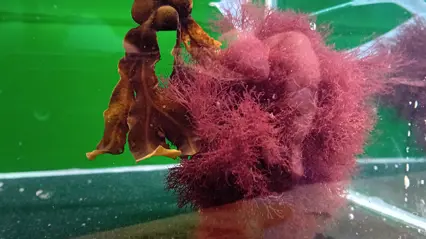
The Kingdom of Colours
The project "The Kingdom of Colours" focuses on developing new methods for monitoring algal toxins in marine environments using visual signals such as the pigmentation and patterns of algae.
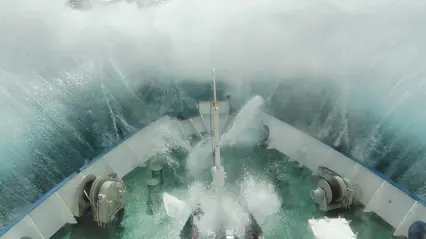
Marine extreme weather
Heatwaves in the sea can affect fish and other organisms, and extreme storms can reduce fishing opportunities. In this project, researchers are studying the effects of heatwaves on fish and food webs through models and experiments.
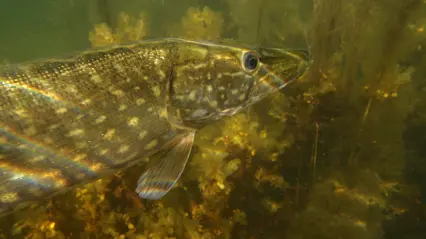
No-fishing areas
In no-fishing areas, fishing is not permitted, thereby protecting species and their habitats. At the Department of Aquatic Resources, we monitor the development of Sweden's no-fishing areas and provide recommendations on how they can be best designed.
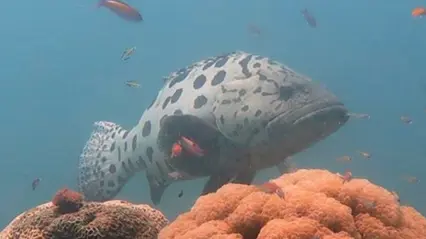
FishLinks
In the FishLinks project, researchers are investigating whether tourism in Tanzania contributes to unsustainable fishing pressure, and if so, in what way.
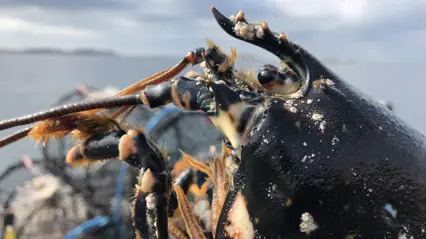
Lobserve
The Lobserve project is a citizen science initiative aimed at increasing knowledge about European lobster along the Swedish west coast.
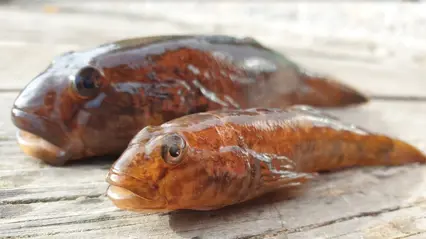
Round goby – turning risk into resource
In this project, we are developing knowledge on how the round goby affects fish communities and ecosystem services, whether we can prevent its accidental spread in fish migration routes, if it’s possible to reduce its populations through effective fishing, and whether native species can limit the goby’s spread.
Research projects
-
Lake food web responses to variation in land use practices across environmental gradients
This project will address how land-use change and forestry practises have altered, and may come to further alter, lake ecosystem diversity and function through inputs of dissolved organic matter (DOM) and nutrients along natural gradients in lake-biogeochemistry and catchment vegetation. -
Vitamin Sea: Identifying risks in the flow of nutrition from aquatic foods in vulnerable coastal and islands states in the face of a changing climate
In the Vitamin Sea-project we will investigate how climate change effect people's access to nutritious food from the ocean, especially those living in coastal areas and in small island nations. -
HotFish – Sustaining marine biodiversity under climate change
The HotFish project investigates the distribution and seascape connectivity of fish in the Swedish Baltic Sea to improve and expand the Swedish marine protected area network.
Research areas
-
Algtox - Knowledge Center on Algal Toxins
We can expect toxic algal blooms to become more common as the climate changes. A better understanding of which toxins algae produce and under what circumstances this happens will therefore become increasingly important, and this we aim to investigate within Algtox. -
AquaGenomics: linking genes and genomes to population and ecosystem health in a changing world
We combine genomics and ecology to uncover evolutionary processes shaping aquatic life in a changing world. -
Fish in food-webs: ecology & evolution of aquatic communities
We link variation in body size and community composition to ecological and evolutionary dynamics in changing environments. In our research we combine dynamic models, experiments and analysis of long-term ecological data from lake, coast and open sea systems. -
Offshore renewable energy
Renewable energy is growing globally, including offshore wind. Key questions arise about impacts on marine life, fisheries, and other uses. The Department of Aquatic Resources (SLU Aqua) offers expert knowledge to support marine renewable energy development.
-
More hands in the water to give researchers better insight into Baltic Sea fish
Can more hands in the water provide better knowledge about fish health? Researchers from the Swedish University of Agricultural Sciences (SLU) are now testing a new method to collect data along the Swedish Baltic Sea coast. -
Vitamin Sea: Researchers collaborate globally to secure access to blue food
How will climate change affect people's access to nutritious food from the ocean, especially those living in coastal areas and in small island nations? This is the focus of the project Vitamin Sea, led by researchers from the Swedish University of Agricultural Sciences (SLU). -
Healthy cod in the Åland Sea carry a chemical mystery
Researchers at the Swedish University of Agricultural Sciences (SLU) have made a remarkable discovery in cod from the Åland Sea. Compared to their relatives in the rest of the Baltic Sea, the Åland cod have extremely high levels of boron in their otoliths. But where it comes from remains a mystery. -
Do our freshwater crayfish grow differently? Master’s student Nick Paulus is seeking the answers
How are Swedish freshwater crayfish affected by their local habitats – and what could this mean for the future of fisheries and conservation? These are the questions that master’s student Nick Paulus is seeking to answer.